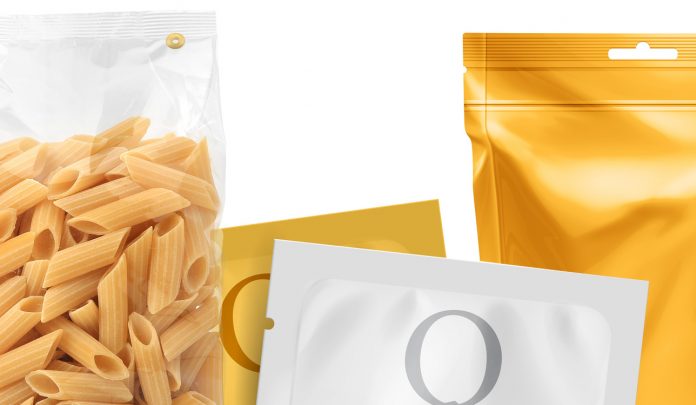
Syntegon Technology, formerly Bosch Packaging Technology, contributes its vast packaging and processing expertise to the European initiative CEFLEX to foster a circular economy for flexible packaging. As a leading consortium of companies and associations representing the entire value chain of flexible packaging, CEFLEX aims to establish a collecting, sorting, and reprocessing infrastructure throughout Europe by 2025. With the help of industry partners from all parts of the value chain, CEFLEX has developed dedicated ‘Designing for a Circular Economy Guidelines’ for flexible packaging. After several rounds of input from the consortium, the open consultation on the guideline drafts is finished. They will be launched in spring 2020.
Commenting on this, Matthias Klauser, project leader and sustainability expert at Syntegon Technology, said, “Sustainable packaging needs to be easily recyclable and processable at the same time. With our long-standing expertise, we can help to pave the way to a circular economy that leaves room for production efficiency.”
Circular economy – the origins
The concept of a circular economy dates back to the mid-1960s when American economists were looking for possibilities to use resources more sustainably. As opposed to linear economies where products are made and then disposed of, circular systems try to restore products, components, or materials by reusing, repairing, or even recycling them.
The concept has evolved ever since, with the European Commission first issuing a circular economy manifesto in 2012, then successfully implementing a Circular Economy Action plan with 54 measures in 2018. The latter saw the adoption of ambitious initiatives, including a directive to reduce the impact of certain plastic products on the environment. However, the transition to a circular economy not only requires policymakers to provide the framework. It also relies on the support of key industry players, from material producers to flexible packaging converters, packaging equipment manufacturers, brand owners, and sorting and recycling companies.
Reconciling sustainability and efficiency
Together with some of CEFLEX’s more than 140 industry partners, Syntegon Technology is developing a design guideline for flexible packaging as part of a circular economy roadmap for the whole value chain. “With the guidelines, CEFLEX aims to offer a widely recognized guidance on flexible packaging materials,” Klauser says. “We want to support CEFLEX in reconciling sustainability and efficiency requirements, since not every sustainable packaging material is easy to process efficiently.”
Depending on the material, processes such as sealing might take longer, affecting output and overall equipment effectiveness (OEE). As a leading provider of processing and packaging equipment, Syntegon Technology supports CEFLEX with in-depth packaging and handling knowledge and advice on the use and machinability of materials. “We see the considerable potential, for instance, in mono-polyolefines and other monomaterials,” Klauser explains. “At the same time, packaging and processing equipment providers will need to adapt their technologies to facilitate the implementation of the guidelines. This includes making new materials processable on existing equipment, as well as developing new machine technologies that are suited for all kinds of materials today and in the future.”
IndiFoodBev — authentic, impactful and influential
An English-language food and beverage processing and packaging industry B2B platform in print and web, IndiFoodBev is in its third year of publication. It is said that the Indian food and beverage industries represent approximately US$ 900 billion in revenues which implies more than 20% of the country’s GDP. Eliminating the wastage on the farmside can help to deliver more protein to a higher number of the population apart from generating sizable exports. The savings in soil, seeds, water, fertilizer, energy and ultimately food and nutrition could be the most immense contribution that country is poised to make to the moderation of climate change.
To improve your marketing and grow sales to the food and beverage processing and packaging industry, talk to us. Our research and consulting company IppStar [www.ippstar.org] can assess your potential and addressable markets in light of the competition. We can discuss marketing, communication, and sales strategies for market entry and growth.
Suppliers and service providers with a strategy and budget for targeted marketing can discuss using our hybrid print, web, video, and social media channels to create brand recognition linked to market relevance. Our technical writers are ready to meet you and your customers for content.
The second largest producer of fruit and vegetables in the world is continuously expanding processing capacities and delivery systems with appropriate innovative technologies. We cover product and consumer trends, nutrition, processing, research, equipment and packaging from farm to thali. Get our 2025 media kit and recalibrate your role in this dynamic market. Enhance your visibility and relevance to existing markets and turn potential customers into conversations. Ask for a sample copy of our bi-monthly in print or our weekly IndiFoodBev eZine each Wednesday.
For editorial info@ippgroup.in — for advertisement ads1@ippgroup.in and for subscriptions subscription@ippgroup.in
Naresh Khanna – 10 February 2025
Subscribe Now










